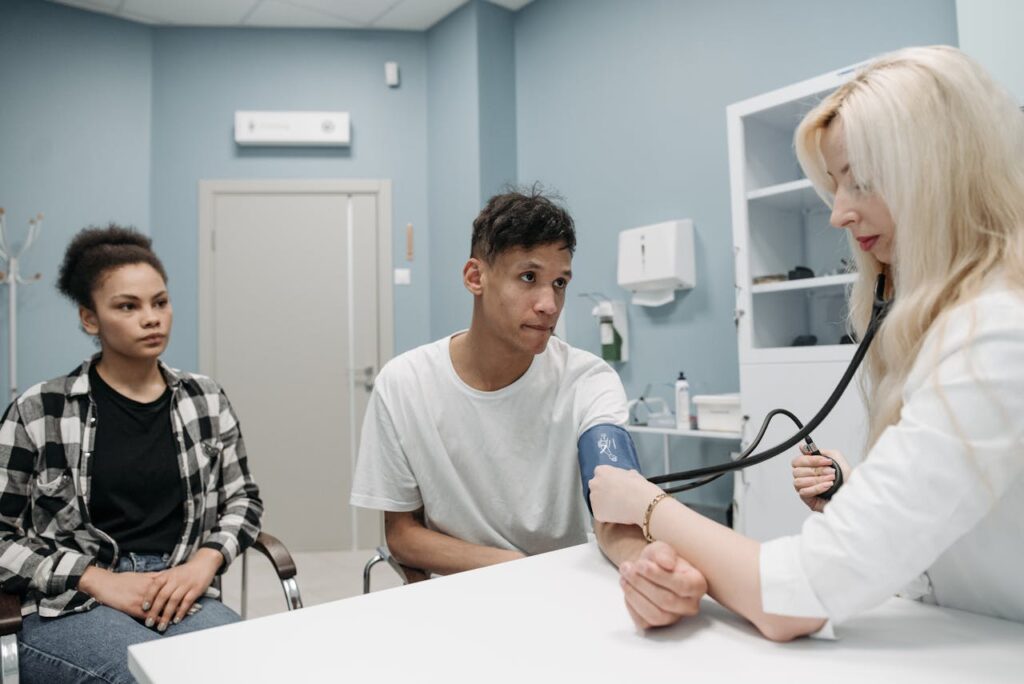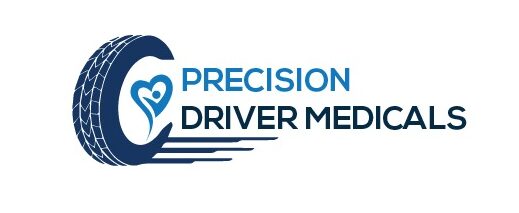Learn about taxi driver medical requirements in the UK. Find out who needs driver medicals, what’s involved, and how Precision Driver Medicals can help you stay road legal.
Overview
If you’re considering becoming a taxi or private hire driver in the UK—or you’re already licensed—you’ll likely need to pass a medical examination. Known as driver medicals, these health checks ensure that drivers meet the physical and mental standards set by the DVLA and local licensing authorities.
Whether you’re driving a Hackney carriage in London or a private hire vehicle in Manchester, understanding the taxi driver’s medical requirements is crucial for maintaining your license and staying on the road.
Why Are Taxi Driver Medicals Required?
Taxi drivers spend long hours behind the wheel, often navigating busy urban roads. To protect public safety, local authorities and the DVLA require medical assessments to ensure drivers are physically and mentally fit to operate a vehicle.
Key reasons include:
- Reducing road accidents caused by health issues
- Ensuring the long-term health and wellness of drivers
- Compliance with DVLA Group 2 medical standards (in most areas)
- Renewing or applying for a taxi license
Who Needs a Taxi Driver Medical?
In most UK councils, both new applicants and renewing license holders must undergo a medical assessment at specific intervals. Here’s who typically needs one:
- New taxi/private hire applicants
- Drivers over 45 (usually every 5 years)
- Drivers over 65 (annually)
- Drivers with existing health conditions (e.g. diabetes, epilepsy)
- Those whose licensing authority follows DVLA Group 2 medical guidelines
Each council may have slight variations in requirements, so it’s essential to check with your local licensing office.

What’s Involved in Taxi Driver Medicals?
At Precision Driver Medicals, we offer professional, affordable, and DVLA-compliant driver medicals across the UK. Here’s what you can expect during your taxi driver medical examination:
1. Medical History Review
We’ll ask questions about:
- Current medications
- Previous surgeries
- Chronic illnesses
- Alcohol and substance use
2. Vision Test
You must meet the minimum eyesight requirement:
- Be able to read a number plate from 20 metres (with glasses or contact lenses if needed)
3. Blood Pressure and Cardiovascular Check
- Your blood pressure must be within acceptable DVLA limits.
- We check for signs of heart disease, stroke, or related issues.
4. Neurological and Psychological Review
- Includes history of seizures, blackouts, or mental health conditions.
- Assessing cognitive awareness and reaction time.
5. Musculoskeletal Health
- We assess your ability to operate pedals, steering, and controls.
Related Driver Medical Services We Offer
At Precision Driver Medicals, we don’t just stop at taxi medicals. We also offer:
- HGV Medicals
- PCV (Bus) Medicals
- Ambulance Driver Medicals
- Motorhome Medicals
- Forklift and Safety-Critical Medicals
Each service is carried out by GMC-registered doctors at competitive prices, with nationwide clinic locations and same-day appointments available.
How Often Do Taxi Drivers Need Medicals?
Depending on your local licensing authority, the frequency of driver medicals varies:
| Age Group | Frequency of Medical |
|---|---|
| Under 45 | At application (then not again unless specified) |
| 45 – 65 | Every 5 years |
| Over 65 | Every year |
Additionally, if you develop any new medical conditions while holding a license, you may be required to report and retake a medical.
Common Health Conditions That May Affect Your License
Specific medical issues can impact your eligibility to drive a taxi. However, not all conditions are disqualifying. With proper treatment and disclosure, many drivers continue to work safely.
Conditions requiring disclosure:
- Diabetes (especially insulin-dependent)
- Epilepsy
- Sleep apnoea
- Cardiovascular disease
- Vision impairments
- Mental health conditions (e.g., severe depression, bipolar disorder)
If you’re managing any of the above, it’s best to have a specialist fill out your driver medical form or provide supporting documentation.

Taxi Driver Medical Requirements by City (Examples)
Different cities and boroughs in the UK may have unique requirements. Below are a few examples:
London (TFL – Transport for London)
- Must meet DVLA Group 2 standards
- Must be completed by your GP or a registered medical practitioner with access to your complete records
Manchester
- Group 2 standard required
- Medicals accepted from private clinics like Precision Driver Medicals
Birmingham
- New applicants and renewals at age 45, 50, 55, 60, 65, then yearly
- Must use an approved GP or clinic
Always verify your local council’s exact requirements, but Precision Driver Medicals is familiar with over 100 UK councils and can advise accordingly.
What to Bring to Your Driver Medical Appointment
To avoid delays, ensure you come prepared:
- Photo ID (driving license or passport)
- Your GP’s contact details
- A list of medications (if any)
- Glasses or contact lenses (if worn)
- Any specialist letters for conditions (e.g. diabetes or epilepsy)
We also recommend arriving a few minutes early to complete any required forms.
Why Choose Precision Driver Medicals?
At Precision Driver Medicals, we understand that your time and livelihood matter. We’ve designed our services with professional drivers in mind.
Here’s why thousands of UK drivers trust us:
- DVLA-compliant medicals
- GMC-registered doctors
- Same-day and weekend appointments
- Nationwide clinics
- Affordable pricing with no hidden costs
- Support for Group 2 standards across most UK councils
Final Thoughts
Understanding taxi driver medical requirements is essential if you want to stay compliant and keep your license up to date. Regular driver medicals ensure both your safety and the safety of passengers on the road.
Whether you’re applying for the first time or renewing your license, Precision Driver Medicals makes the process smooth, fast, and stress-free. Book your taxi driver medical today at www.precisiondrivermedicals.com or call 020 3834 3185 to speak to our team.



